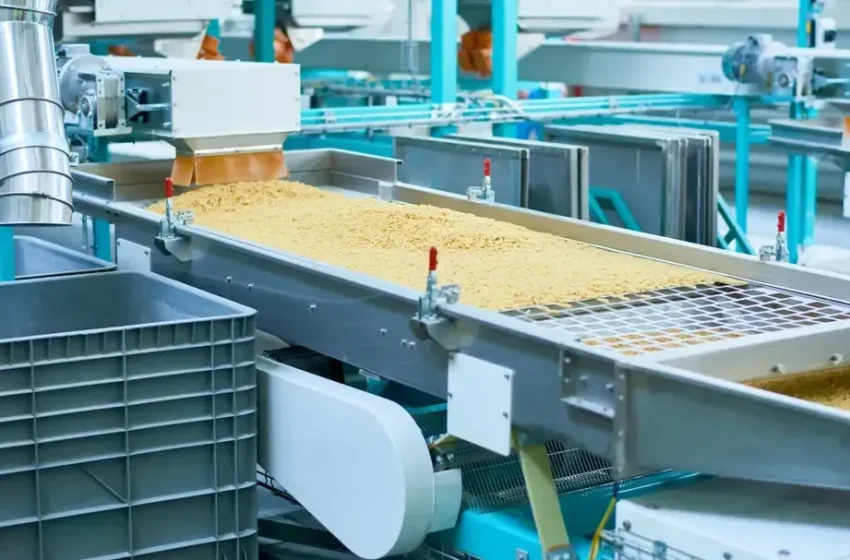Palm Oil Equipment Integration into Snack Food and Bakery Production Lines

Palm oil is a staple ingredient in the snack and bakery industry, valued for its versatility, long shelf life, and performance in high-heat applications. From crispy potato chips to fluffy pastries and creamy fillings, palm oil plays a vital role in texture, taste, and product stability. As the food industry becomes increasingly focused on automation, traceability, and hygiene, integrating palm oil equipment into snack food and bakery production lines has become essential.
This seamless integration—enabled by advanced systems from palm oil machinery manufacturers and trusted food processing equipment suppliers—ensures the safe, efficient, and continuous use of palm oil, optimizing both product quality and operational performance.
The Growing Importance of Palm Oil in Food Production
Palm oil is widely used in processed foods due to its semi-solid consistency at room temperature, high oxidative stability, and neutral flavor. Its functions vary across applications:
In snack food production, it’s ideal for deep frying chips, crackers, and extruded snacks, delivering a crisp texture and golden color.
In bakery products, palm oil is used in shortenings, dough conditioners, fillings, and icings for structure, moisture retention, and flavor delivery.
In margarine and spreads, it offers spreadability without the use of hydrogenated oils, eliminating harmful trans fats.
To consistently meet these functional demands, food producers must have access to palm oil that is reliably refined, stored, and delivered within strict quality parameters. This is where integrated oil handling and supply systems come into play.
Why Integration Matters in Snack and Bakery Lines
Traditionally, palm oil is refined and shipped in bulk to food processing plants, where it is manually stored and fed into production lines. However, this disjointed approach presents several challenges:
Inconsistent oil temperature and quality due to poor handling or long storage
Manual transfer processes that increase contamination risks and labor costs
Inefficient batch usage, leading to product variability and wastage
Limited traceability and automation compatibility
Modern production environments demand a different approach—one where palm oil is seamlessly integrated into the entire manufacturing process. This includes precise control of oil temperature, volume, hygiene, and timing.
Key Components of an Integrated Palm Oil System
To address the operational and quality challenges, palm oil machinery manufacturers and food processing equipment supplier provide comprehensive solutions designed to work alongside mixers, fryers, depositors, ovens, and packaging machinery. Key components include:
1. Refined Palm Oil Storage and Heating Systems
Heated stainless steel tanks maintain the oil at optimal temperature and prevent solidification. These tanks are designed with food-grade coatings, insulation, and agitation mechanisms for consistent oil readiness.
2. Automated Oil Transfer Lines
Sanitary pipelines transfer oil from storage to production equipment with minimal manual intervention. Pumps and flow meters ensure the precise delivery of oil, enhancing formulation accuracy and reducing waste.
3. Inline Filtration and Quality Monitoring
Filters remove impurities and particulates from the oil before it enters the fryer or mixer. Optional sensors can monitor oil viscosity, temperature, and oxidation levels in real-time to maintain product consistency.
4. PLC-Controlled Dispensing Units
Programmable systems allow manufacturers to pre-set oil volumes based on recipe requirements. This guarantees accurate dosing into doughs, batters, or frying systems without overuse.
5. Oil Recovery and Reuse Systems
In snack production, oil used for frying can be filtered, cooled, and reused, reducing costs and environmental impact. Integrated systems ensure that reused oil still meets food safety standards.
Benefits of Equipment Integration
✅ Improved Product Quality
Integrated systems ensure that palm oil is always delivered at the right temperature and quantity, preventing undercooked snacks, greasy textures, or inconsistent dough performance.
✅ Greater Operational Efficiency
Automation reduces labor dependency, speeds up production, and eliminates the need for manual transfer or weighing of palm oil.
✅ Enhanced Food Safety and Hygiene
Closed-loop systems reduce the risk of contamination. Stainless steel piping, CIP (clean-in-place) features, and filtration units help maintain sanitary standards required by HACCP and ISO 22000.
✅ Streamlined Traceability
Digital integration enables batch tracking and oil usage logs, which are crucial for audits, product recalls, and compliance with food industry regulations.
✅ Reduced Waste and Cost
Precise dosing and reuse systems help control ingredient costs while minimizing oil disposal and downtime.
The Role of Palm Oil Machinery Manufacturers
Modern palm oil machinery manufacturers play a critical role in this integration by providing the upstream systems that ensure oil quality, stability, and safety. Their equipment includes:
Refining units (neutralization, bleaching, deodorization) for food-grade oil
Oil polishing and filtering systems
Energy-efficient heating and storage tanks
Control systems for oil quality monitoring
These manufacturers ensure that the refined palm oil entering the food plant meets industry and customer expectations.
The Role of Food Processing Equipment Suppliers
Food processing equipment suppliers serve as the connection between raw ingredient handling and food production. Their expertise in snack and bakery line design allows them to integrate palm oil systems into:
Mixers and dough blenders
Continuous frying lines
Depositors, enrobers, and topping applicators
Filling, extrusion, and spraying equipment
These suppliers also ensure that palm oil systems are compatible with Industry 4.0 automation, IoT sensors, and centralized production control.
Conclusion
In today’s high-speed, high-demand food manufacturing environment, integrating palm oil equipment into snack food and bakery lines is more than a convenience—it’s a necessity. From ensuring consistent quality to improving production efficiency and food safety, this integration delivers tangible benefits that support business growth and consumer satisfaction.
Thanks to the collaborative efforts of leading palm oil machinery manufacturers and food processing equipment suppliers, food producers can build smarter, more sustainable, and more competitive operations. With palm oil continuing to be a key ingredient in processed foods, investing in integrated oil handling systems is an essential step toward the future of food production.